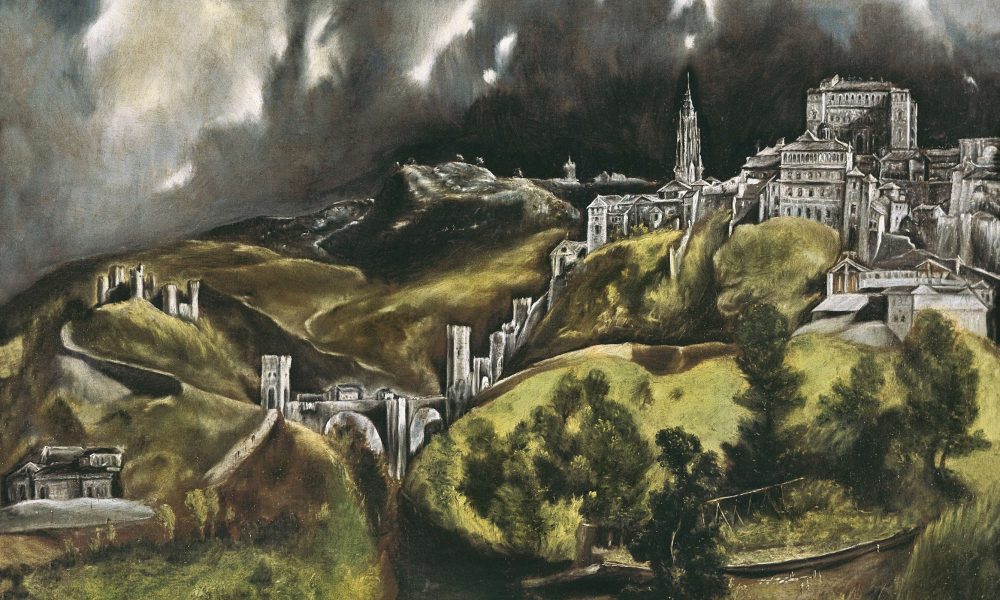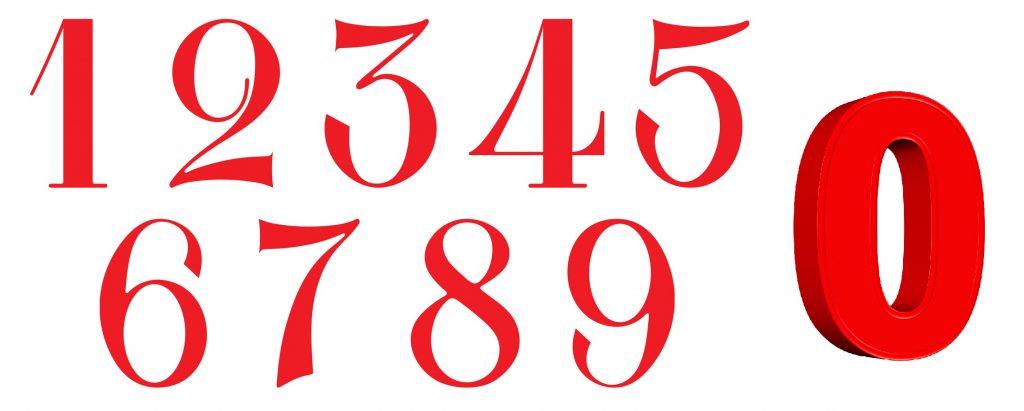
1150 AD to 1170 AD, Psalm 105: Ibn Ezra.
This site was first built in French (see www.147thgeneration.net). The English translation was mainly done using « google translation ». We have tried to correct the result of this translation to avoid interpretation errors. However, it is likely that there are unsatisfactory translations, do not hesitate to communicate them to us for correction.
(for that click on this paragraph)
Summary
This generation of the 1150s and 1160s.
According to our count, this generation is the 105th generation associated with Psalm 105. It is in this Psalm 105 that we therefore find an illustration of the facts of this generation.
In Europa, the massacres perpetrated have a large impact on the life of Jewish communities. After these, the status of Jews changes deeply and their usefulness is largely questioned.
The Almohad invasion precipitated the end of the Judeo-Arab golden age. The end of this golden age coincides with a new phase in the evolution of Jewish thought with the emergence in particular of one of the greatest Jewish thinkers, at least in terms of influence: Maimonides. In the face of the Almohad threat, Toledo, in the hands of Christians, serves as a temporary refuge for the Jews of Muslim Spain. Rich in the contribution of these Jews, Toledo channels the intellectual flow that will enrich the Christian Europe of Greek works, among others, that Muslim Spain had accumulated until then.
Muslim Spain had been the center of the intellectual world for generations where it advocated tolerance; religious fanaticism leads to its inexorable decline in favor of the nascent West, which on the intellectual bases of this moribund empire lays the foundation for its next hegemony. This will also have consequences in the use of language, until then Arabic was privileged even in specifically Jewish works. The disintegration of Al Andalus gives Hebrew its place in Jewish works.
Far from drying up, the golden age of Spanish Judaism far from drying up only gets stronger but instead of continuing to settle in Muslim Spain, he is looking elsewhere for more favorable accommodation. Another actor of the Golden Age, like Maimonides, Abraham Ibn Ezra sought refuge outside Muslim Spain. He too, despite exile, does not renounce the alliance by declining new major works.
Talk
The end of the Judeo-Arab golden age
The Almohad invasion is the event that makes the Jews aware that there is no promised land apart from that promised by God.
Disillusion is also on the side of Western Europe. Crusades, apart from the massacres perpetrated have a large impact on the life of Jewish communities. After these, the status of Jews changes deeply and their usefulness is largely questioned.
In the face of the Almohad threat, Toledo, in the hands of Christians, serves as a temporary refuge for the Jews of Muslim Spain. Rich in the contribution of these Jews, Toledo channels the intellectual flow that will enrich the Christian Europe of Greek works, among others, that Muslim Spain had accumulated until then.
The Almohad invasion precipitated the end of the Judeo-Arab golden age. The end of this golden age coincides with a new phase in the evolution of Jewish thought with the emergence in particular of one of the greatest Jewish thinkers, at least in terms of influence: Maimonides. He himself comes from Andalusia, he fled the new masters that are the Almohads. If Maimonides emerges during this generation, Abraham Ibn Ezra concludes his work there:
- The Jewish [1] community of Al-Andalus came to an abrupt end when, from 1146, an extremist Muslim sect, the Almohads, arrived from Morocco and gradually took control of Islamic Spain, banning Judaism and Christianity in his territories. The resulting flight of Jewish intellectuals transported Judeo-Arabic culture to Christian Spain (which now extended to the south and, in the mid-thirteenth century, occupied virtually the entire peninsula) and to Provence. Others, like the Cordovan Jew Maimon, fled to other parts of the Islamic world: Maimon went to Morocco, and from there, finally, to Egypt where his son, Moses Maimonides (1138-1204), had a remarkable career and establishes a lineage of community authorities that lasted until the fourteenth century.
Muslim Spain had been the center of the intellectual world for generations where it advocated tolerance; religious fanaticism leads to its inexorable decline in favor of the nascent West, which on the intellectual bases of this moribund empire lays the foundation for its next hegemony.
This will also have consequences in the use of language, until then Arabic was privileged even in specifically Jewish works. The disintegration of Al Andalus gives Hebrew its place in Jewish works.
Toledo becomes a center for a revival of Judaism that concerns not only exegesis and faith but also the so-called secular sciences that Jews appropriate and spread to the nascent Europe to the detriment of Muslim Spain .
In the field of mathematics, Abraham Ibn Ezra also participates:
- Abraham [2] Ibn Ezra introduced the positional numbering now based on the first nine letters of the Hebrew alphabet. He also made use of the zero he called « galgal » (the circle or the wheel). He was also interested in combinatorial analysis, the calculation of permutations and combinations.
Toledo
Thus, the announced end of Muslim Spain, far from signifying the end of Spanish Judaism is instead an opportunity to rebound Jewish culture in the new home of the land that represents the Christian kingdom of Toledo.
If this refuge will not remain eternally a favorable land for the Jews; for a few generations, it will enable Jews to consolidate their religious heritage and strengthen themselves in the general knowledge of the sciences (the « wonders » and « miracles » of God). The Jews (« the children of Jacob« ) will transmit this general knowledge to all nations, essentially for the generation that interests us, the Western world (« The seed of Abraham« ).
This is the meaning of the beginning of the psalm of this generation:

- Give thanks to the Lord, call out in His name; make His deeds known among the peoples.
- Sing to Him, play music to Him, speak of all His wonders.
- Boast of His holy name; may the heart of those who seek the Lord rejoice.
- Search for the Lord and His might; seek His presence constantly.
- Remember His wonders, which He performed, His miracles and the judgments of His mouth.
- The seed of Abraham His servant, the children of Jacob, His chosen ones.
- He is the Lord our God; throughout all the earth are His judgments.
In fact, the Almohad invasion at the end of the last generation should have had disastrous consequences on Spanish Judaism and through it on the very future of Judaism because of the importance of the Jewish community in Spain.
Abraham Ibn Ezra
On the contrary, Judaism comes out even stronger, as we have seen previously, the golden age of Spanish Judaism far from drying up only gets stronger but instead of continuing to settle in Muslim Spain, he is looking elsewhere for more favorable accommodation. Like the young Maimonides who flees the Almohads without neglecting the divine covenant. He is still seeking new teachings in exile which will allow him to extend the golden age of Spanish Judaism with new major works.
Another actor of the golden age, Abraham Ibn Ezra also seeks refuge outside of Muslim Spain. He, too, despite the exile, does not deny the alliance by declining new major works.
Toledo, which we mentioned at the beginning of the Psalm of this generation, is one of the refuges that supplant Muslim Spain for the Jews in terms of intellectual and religious influence. Toledo, border between East and West became the center of transmission of culture between East and West. In this role of pillar of the rebirth of the Western world that Toledo plays, the Jews, alongside the Christians, play a leading role:
- In the middle [3] of the twelfth century, Archbishop Don Raimondo made the city a center for the translation of the scientific and philosophical works of the Eastern Muslims, a work in which the Jews, who knew the languages, worked intensely.
Or :
- Rather [4] than under Archbishop Raymond, the sources invite us more to situate the true beginning of the Toledan translations at the time of Archbishop John (1152-1166). The latter appears indeed as the most likely sponsor of the translation of the treatise « Of the soul » that is dedicated to him by a certain « Avendeuth » (= Ibn Daud? Ibn David?). That is to say the part devoted to psychology in the philosophical encyclopedia of Avicenna known as Sita. […] One of the readings of the dedication can be privileged: « to Jean very revered archbishop of the siege of Toledo and primate of Spain, Avendeuth, philosopher Israelite, in testimony of his deferential obedience ».
As Ibn Daoud, another great figure of the golden age of Spanish Judaism, recognizes, even when times are hard for Jews, God does not abandon his people.
The Jews remain faithful to God regardless of the hardships experienced as shown by the journeys of Abraham Ibn Ezra and Maimonides. God, on the other hand, always plans to save his people after the trial. Just as Constantinople fell just before the inquisition opening a way out for the Spanish Jews. Toledo at the hands of Christians welcomes Jewish elites to allow the transmission that is their responsibility until other trials are to face.
This is the meaning of the following of the psalm of this generation which evokes the wanderings of the Jews within the nations and their providential welcome in Egypt thanks to the miraculous emergence of Joseph in Egypt like Rabbi Yehuda ibn Ezra in Toledo :

- He remembered His covenant forever, the word He had commanded to the thousandth generation,
- Which He had made with Abraham, and His oath to Isaac,
- And He set it up to Jacob as a statute, to Israel as an everlasting covenant,
- Saying, « To you I shall give the land of Canaan, the portion of your heritage. »
- When they were few in number, hardly dwelling in it.
- And they walked from nation to nation, from one kingdom to another people.
- He let no man oppress them, and He reproved kings on their account.
- « Do not touch My anointed ones, and do not harm My prophets. »
- He called a famine upon the land; He broke every staff of bread.
- He sent a man before them; Joseph was sold as a slave.
- They afflicted his foot with fetters; his soul was placed in irons.
- Until His word came, the saying of the Lord purified him.
- A king sent and released him, a ruler of peoples [sent] and loosed his bonds.
- He made him the master of his household and the ruler over all his possessions.
- To bind up his princes with his soul, and he made his elders wise.
- Israel came to Egypt, and Jacob sojourned in the land of Ham.
- And He made His people very fruitful, and He made it stronger than its adversaries.
Call the dove (Selihah)
But if the Jews think they will once again find a home in Toledo, as their ancestors once did in Egypt, the next generations will remind them bitterly that only the promised land can serve them as a sustainable home.
This is expressed for example in his poem « Call the dove (Selihah) », Abraham Ibn Ezra, intellectual of this generation, who notes the sad fate of the Jews in exile and hopes that God will remember again of his people:
- Call [5] the dove, ancient God of heaven,
- That you have exiled. It’s a cruel eagle
- Who, my first time, sent him to Babel,
- And that’s the next, a deadly boar
- Who terrorized him. Also she does find
- Where to rest the leg, where to fold its wing …
- […]
- Creak his enemies with their sharpened fangs:
- « We will come out with ferocity! «
- Night and day, without stopping, ah! what cruelty,
- Her little ones she sees, endless, decapitated … […]
- My rock, to the compassion that you are not ready!
- Since she is looking for Your shelter? And the decree
- Who puts her in prison, forever, in secret,
- What! You, his Redeemer, You maintain this judgment!
- She’s a slave? Buy it ! But it’s true
- That the girl she is, revive her You should!
- The prophet Isaiah said, You remember:
- « His infant, a woman will she forget it? »
- Be a wall of fire, bring her home!
It is this time in a divine intervention, equal to that which allowed the Jews to extricate themselves from the Egyptian yoke, that the end of the psalm of this generation expresses. The situation of the Jews in Spain has strong similarities with that of the Jews in Egypt: at first it finds a land of welcome where they thrive and then gradually the feelings of the host people turn around.
The initial good neighborhood turns into hatred towards the Jews which quickly becomes inextricable for the Jews, trapped. The Jews then rely on God to find a favorable outcome that in both cases will be the escape from the country.
As the exit from Egypt, the exit from Spain will be only a first step towards the promised land. The reminder of the miracles of the coming out of Egypt echoes the prayer of Ibn Ezra in the rest of the psalm:

- He turned their heart to hate His people, to plot against His servants.
- He sent Moses His servant, [and] Aaron whom He chose.
- They placed upon them the words of His signs and His miracles in the land of Ham.
- He sent darkness and it darkened, and they did not disobey His word.
- He turned their water into blood, and it killed their fish.
- Their land swarmed with frogs in the rooms of their monarchs.
- He commanded and a mixture of noxious beasts came, lice throughout all their boundary.
- He made their rains into hail, flaming fire in their land.
- And it struck their vines and their fig trees, and it broke the trees of their boundary.
- He spoke and locusts came, and nibbling locusts without number.
- And they consumed all grass in their land, and they consumed the produce of their soil.
- And He smote every firstborn in their land, the first of all their strength.
- And He took them out with silver and gold, and there was no pauper among their tribes.
- Egypt rejoiced with their departure for their fear had fallen upon them.
- He spread out a cloud for shelter, and fire to illuminate the night.
- They asked, and He brought quails, and the bread of heaven sated them.
- He opened a rock and water flowed; in the deserts ran rivers.
- For He remembered His holy word with Abraham His servant.
- And He took out His people with joy, His chosen ones with joyful singing.
- And He gave them lands of nations, and they inherited the toil of kingdoms.
- In order that they keep His statutes and observe His laws. Hallelujah.

[1] (directed by) David Biale: « Cultures of the Jews ». Raymond P. Scheindlin’s chapter: « Merchants and intellectuals, rabbis and poets; Judeo-Arab culture in the golden age of Islam « . (French: « Les Cultures des Juifs ». Chapitre de Raymond P. Scheindlin : « Marchand et intellectuels, rabbins et poètes ; la culture judéo-arabe à l’âge d’or de l’islam ». (p. 310) ).
[2] David Bensoussan: « Spain of the three religions » (French: « L’Espagne des trois religions » (p. 81) ).
[3] (directed by Louis Cardaillac) « Toledo, twelfth – thirteenth, Muslims, Christians and Jews: Knowledge and Tolerance ». Chapter of Leon Tello: « The Judiae, an air of success ». (French: « Tolède, XIIe – XIIIe, Musulmans, Chrétiens et Juifs : Le savoir et la tolérance ». Chapitre de León Tello : « La Judéria, un air de réussite ». (p. 125) ).
[4] (directed by Louis Cardaillac) « Toledo, twelfth – thirteenth, Muslims, Christians and Jews: Knowledge and Tolerance ». Chapter of Danielle Jacquart: « The School of Translators ». (French: « Tolède, XIIe – XIIIe, Musulmans, Chrétiens et Juifs : Le savoir et la tolérance ». Chapitre de Danielle Jacquart : «L’école des traducteurs ». (p. 181) ).
[5] (under the direction of) Emmanuel Haymann: « Jewish Pages ». Chapter VI: « Middle Ages ». (French: « Pages juives ». Chapitre VI : « Moyen Âge » ).


